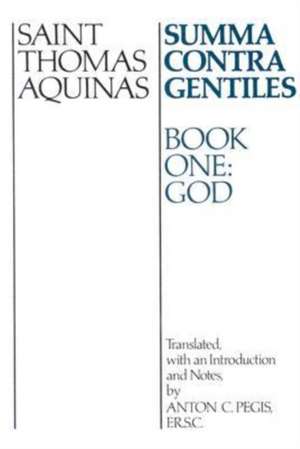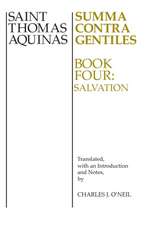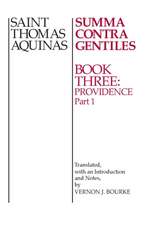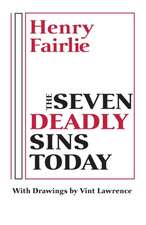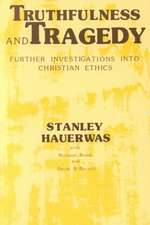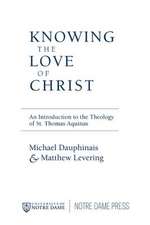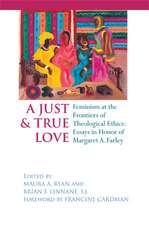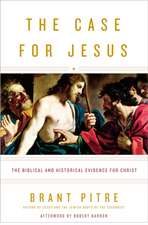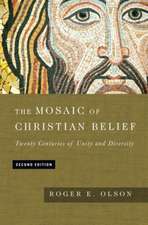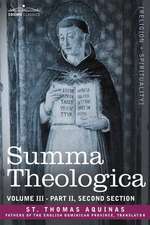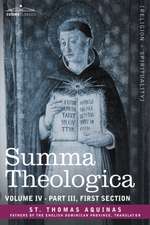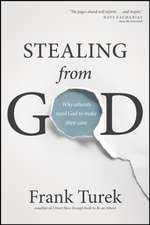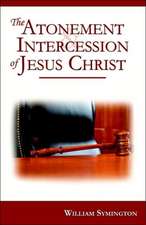Summa Contra Gentiles – Book One: God
Autor St Thomas Aquinas, Anton C. Pegisen Limba Engleză Paperback – 30 apr 1975
The Summa Contra Gentiles is not merely the only complete summary of Christian doctrine that St. Thomas has written, but also a creative and even revolutionary work of Christian apologetics composed at the precise moment when Christian thought needed to be intellectually creative in order to master and assimilate the intelligence and wisdom of the Greeks and the Arabs. In the Summa Aquinas works to save and purify the thought of the Greeks and the Arabs in the higher light of Christian Revelation, confident that all that had been rational in the ancient philosophers and their followers would become more rational within Christianity.
This exposition and defense of divine truth has two main parts: the consideration of that truth that faith professes and reason investigates, and the consideration of the truth that faith professes and reason is not competent to investigate. The exposition of truths accessible to natural reason occupies Aquinas in the first three books of the Summa. His method is to bring forward demonstrative and probable arguments, some of which are drawn from the philosophers, to convince the skeptic. In the fourth book of the Summa St. Thomas appeals to the authority of the Sacred Scripture for those divine truths that surpass the capacity of reason.
The present volume studies God's existence, nature, and substance, and especially his perfect actuality, the autonomy of his knowledge, the independence of his will, the perfection of his life, and the generosity of his love. Book 2 of the Summa deals with Creation; Book 3, Providence; and Book 4, Salvation.
This exposition and defense of divine truth has two main parts: the consideration of that truth that faith professes and reason investigates, and the consideration of the truth that faith professes and reason is not competent to investigate. The exposition of truths accessible to natural reason occupies Aquinas in the first three books of the Summa. His method is to bring forward demonstrative and probable arguments, some of which are drawn from the philosophers, to convince the skeptic. In the fourth book of the Summa St. Thomas appeals to the authority of the Sacred Scripture for those divine truths that surpass the capacity of reason.
The present volume studies God's existence, nature, and substance, and especially his perfect actuality, the autonomy of his knowledge, the independence of his will, the perfection of his life, and the generosity of his love. Book 2 of the Summa deals with Creation; Book 3, Providence; and Book 4, Salvation.
| Toate formatele și edițiile | Preț | Express |
|---|---|---|
| Paperback (1) | 274.64 lei 43-57 zile | |
| MR – University of Notre Dame Press – 30 apr 1975 | 274.64 lei 43-57 zile | |
| Hardback (1) | 589.10 lei 43-57 zile | |
| MR – University of Notre Dame Press – 30 apr 1975 | 589.10 lei 43-57 zile |
Preț: 274.64 lei
Nou
Puncte Express: 412
Preț estimativ în valută:
52.55€ • 55.02$ • 43.48£
52.55€ • 55.02$ • 43.48£
Carte tipărită la comandă
Livrare economică 07-21 aprilie
Preluare comenzi: 021 569.72.76
Specificații
ISBN-13: 9780268016784
ISBN-10: 026801678X
Pagini: 320
Dimensiuni: 139 x 215 x 20 mm
Greutate: 0.39 kg
Ediția:1
Editura: MR – University of Notre Dame Press
ISBN-10: 026801678X
Pagini: 320
Dimensiuni: 139 x 215 x 20 mm
Greutate: 0.39 kg
Ediția:1
Editura: MR – University of Notre Dame Press
Descriere
The Summa Contra Gentiles is not merely the only complete summary of Christian doctrine that St. Thomas has written, but also a creative and even revolutionary work of Christian apologetics composed at the precise moment when Christian thought needed to be intellectually creative in order to master and assimilate the intelligence and wisdom of the Greeks and the Arabs. In the Summa Aquinas works to save and purify the thought of the Greeks and the Arabs in the higher light of Christian Revelation, confident that all that had been rational in the ancient philosophers and their followers would become more rational within Christianity.
This exposition and defense of divine truth has two main parts: the consideration of that truth that faith professes and reason investigates, and the consideration of the truth that faith professes and reason is not competent to investigate. The exposition of truths accessible to natural reason occupies Aquinas in the first three books of the Summa. His method is to bring forward demonstrative and probable arguments, some of which are drawn from the philosophers, to convince the skeptic. In the fourth book of the Summa St. Thomas appeals to the authority of the Sacred Scripture for those divine truths that surpass the capacity of reason.
The present volume studies God's existence, nature, and substance, and especially his perfect actuality, the autonomy of his knowledge, the independence of his will, the perfection of his life, and the generosity of his love. Book 2 of the Summa deals with Creation; Book 3, Providence; and Book 4, Salvation.
This exposition and defense of divine truth has two main parts: the consideration of that truth that faith professes and reason investigates, and the consideration of the truth that faith professes and reason is not competent to investigate. The exposition of truths accessible to natural reason occupies Aquinas in the first three books of the Summa. His method is to bring forward demonstrative and probable arguments, some of which are drawn from the philosophers, to convince the skeptic. In the fourth book of the Summa St. Thomas appeals to the authority of the Sacred Scripture for those divine truths that surpass the capacity of reason.
The present volume studies God's existence, nature, and substance, and especially his perfect actuality, the autonomy of his knowledge, the independence of his will, the perfection of his life, and the generosity of his love. Book 2 of the Summa deals with Creation; Book 3, Providence; and Book 4, Salvation.
Notă biografică
Peter Carey was ordained a Dominican priest as a young man. After he left the Dominicans, he taught English as a second language and had a long career in banking in New York, before he returned to the priesthood in the Episcopal Church.
